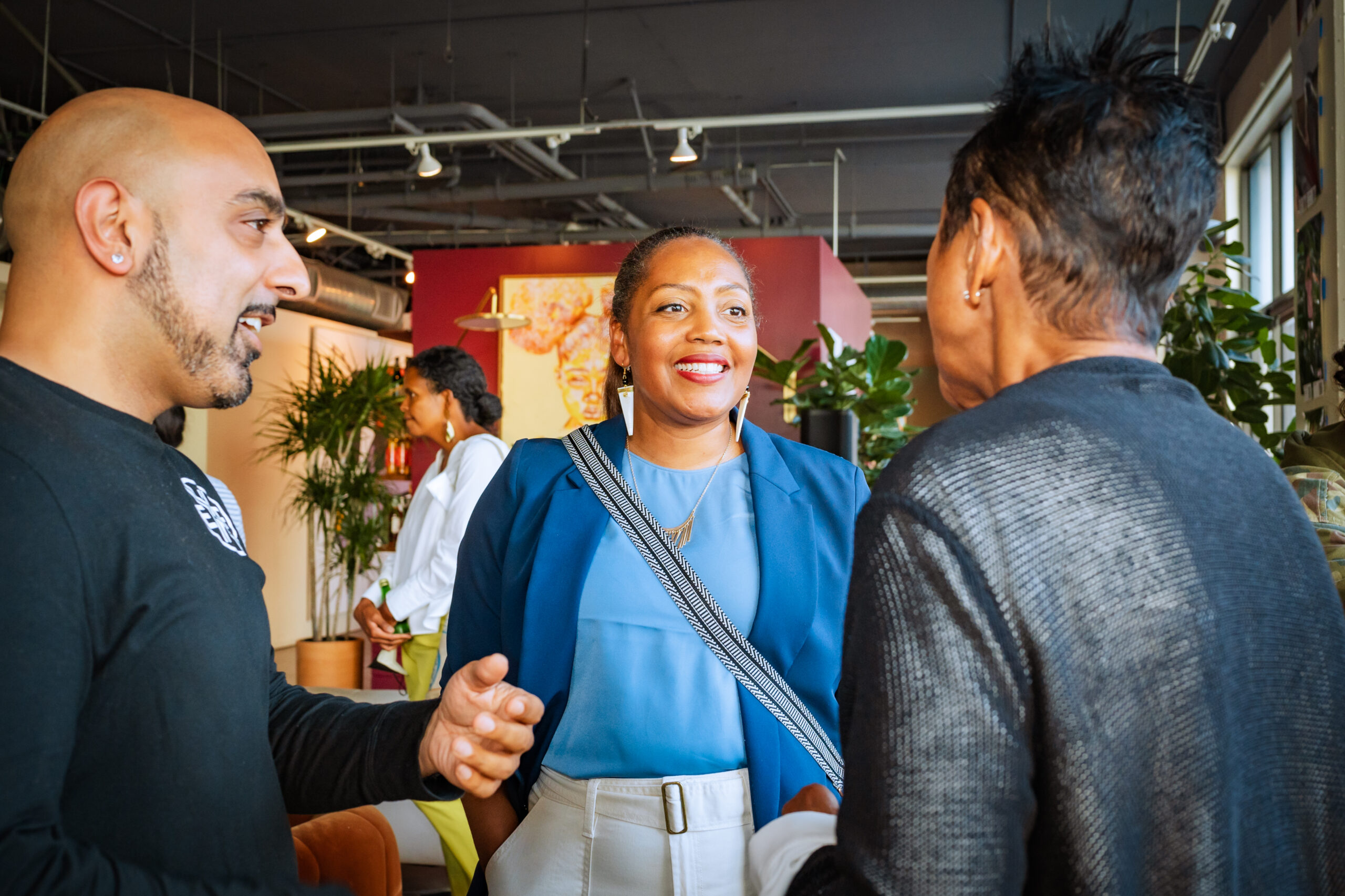By Brandi Howard
For all of us, the world has felt dark, unstable, and fractured since 2016. From political strife to the pandemic to the racial reckoning to climate chaos to war around the globe, we have endured — and continue to endure — a constant flow of unprecedented events and experiences that are impacting our communities and shaping our future. Individually and collectively, we are grappling with how to metabolize this much toxicity, while caring for our families and community. We each have a way of coping, to make it through tough times with our humanity intact — and when we do, we are considered “resilient.”
For me as a Black woman leader, “resilience” is a double-edged sword. Black women in particular face the brunt of racial and gender injustice. We routinely experience devaluation in our work, questions of our abilities in the face of lack of resources, and sheer anti-Blackness. Yet we are expected to be resilient to these challenges. Of course, this is indicative of broader systemic problems. For me, it raises the questions of, “What is healthy resilience?” and “What is the role of philanthropy in creating resilient leaders, organizations, and communities?”
The concept of individual resilience has roots in the historical legacy of slavery that forces Black, Indigenous, and communities of color into a constant state of “strength and resilience” in order to survive. There is an expectation to “suck it up,” overcome, and carry on when met with untenable obstacles. For the organizations that East Bay Community Foundation (EBCF) supports, this concept is all too familiar, especially for leaders of color. Nonprofits are expected to keep our communities afloat with limited resources, and then leaders are pummeled with questions of whether they are doing enough, doing things efficiently, and doing things right. This scrutiny chips away at one’s emotional and mental well-being.
One thing that was affirmed for me during the pandemic was the power of proximity. Community-based organizations that are closest to the issues were our first responders, providing life-saving education, resources, and support to those in need. Many of these organizations are struggling to maintain and meet the financial and wellness needs they require to continue.
That’s why I believe resilience should not be a solitary endeavor. Instead, it should be bolstered by resources, healing tools, and community support. And this is where philanthropy — and EBCF — must play a role.
Our nonprofit partners face a deficit of operating capital and leadership support, combined with pushback from those who should be allies. This stifles growth, innovation, and positive change.
In my experience as a leader, when I am on defense and scrambling to overcome a lack of resources and support, I find myself pulled away from a human-centered, imaginative space and entangled in the weeds of proving I can do my job. This is happening throughout our social movement ecosystem, undermining our capacity to be expansive, visionary and drive systems change. EBCF is reflecting on how we can reduce that power differential and become more of a partner to our grantees.
It starts with trust. At EBCF, we are working to shift our grantmaking practices, so that when nonprofit partners come to us and say, “We have an idea, and we want to test it,” our starting place is true partnership. I want our response to be, “What do you need?” We trust that those on the ground with proximity to community know what our communities need.
The next step is to increase the flow of capital into the community. I want to get beyond funding organizations just enough so they can survive. I want to fund our partners more holistically, so they can move away from pleading for their basic operational needs into a place of sparking innovation, growth, and systems change. I want to fund them at a level where they can have a sense of healthy resilience and, in turn, can foster community healing and resilience.
This is an expansion for EBCF and our philanthropic practices towards more profound, longer-term funding for our community partners. I invite EBCF donors and fund advisors to foster its success by deepening your commitment to EBCF and aligning your giving around this vision of true community support.
Can we count on your support to generate healthy community resilience? Please consider giving to the Campaign for a Just East Bay with a grant from your Donor-Advised Fund by contacting our philanthropic advisors at EBCF, on your Give Interactive donor portal (use code CAMP), or donate below.
As we continue to process current events locally, nationally, and globally, it’s important to know where we can actually make an impact. Investing locally in the East Bay, where we can see the concrete, tangible results of our efforts, can be a salve for the spirit. I hope you will join us, so that we can be that anchor of healthy community resilience for all who live in the East Bay.
